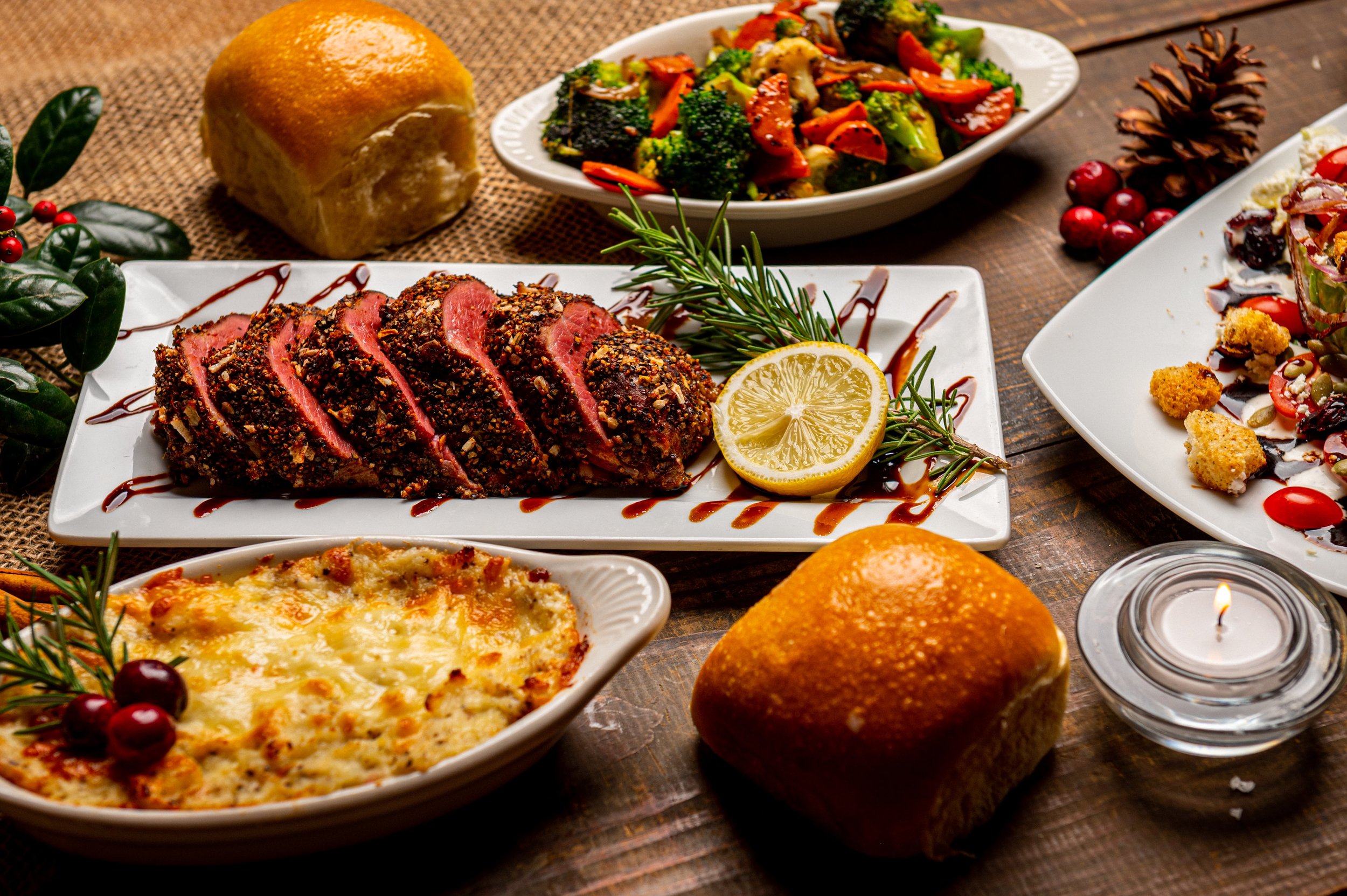Christmas wasn’t always a consumerist holiday, but it has certainly evolved into just that. Although we all love the food and the gifts, it is good to gain some perspective and look at new ways of doing things to make it more sustainable (for the planet, and also for your wallet)! Some of these tips can be applied to other winter holidays, but Christmas is the holiday with which I am most familiar.
1. Gifts. Before you go out shopping (or let people know what you would like for Christmas), look critically at what you are buying – is this something that the recipient actually wants or needs? Is it something that will break easily or will it last for years? Look at giving experiences rather than physical items. I won’t go into too much detail, as I have already written an entire separate blog on this topic. Check out my Zero Waste and Minimalist Gift Ideas blog from 2019.
2. Décor. There are a lot of plastic, breakable, glitter-covered, and musical Christmas decorations. There are HUGE blow-up decorations for the front lawn, and Christmas lights lining every window and door. It is important to remember that every single item that we purchase and own has an environmental impact. Take care of your decorations and store them properly when it is out of season. Ensure that you are allowing them to last many years, or that when you decide you don’t want them anymore they are able to be donated. If things are broken it makes it a lot harder to sell, and unless someone is handy and sees potential, it will end up in the landfill. If you are looking to get new decorations or switch up your theme, why not try to do some DIY decorations like these listed on Bulk Apothecary Blog.
3. Declutter. Go through your decorations and decide which ones you no longer want to keep. Is your bin bursting but you still consistently get new ornaments to put on the tree? There may be items you don’t want anymore. Or ones that are too much of a pain to put up and store. If you are going to donate Christmas decorations, do it now! Thrift stores often do a Christmas shopping event for people to get great deals on ornaments and decorations, but it only works if you bring you stuff in a few weeks before Christmas (or earlier). Otherwise they will be stored until next year, or tossed if they run out of room.
4. Shop local. Rather than filling your Amazon cart and having items shipped from across the world, see what you can get at your small, local shops. During the pandemic a lot of these businesses have suffered (while Bezos has gotten richer), and they need our support! Small businesses provide the BEST customer service because they put more effort and time into each order, and often even personalize it. The items do not have to ship from faraway, helping to reduce carbon emissions from transport. Plus, you are supporting your local economy and jobs to your neighbours!
5. Gift wrapping. Use what you already have first! Do you have a collection of gift bags, tissue and gift wrap that you have stashed away to reuse, but haven’t done it yet? Now’s the perfect time! If your gift bags look too ratty to reuse, then recycle them if possible – there’s no point hanging onto it if you know you’ll never use it. Ensure that you are storing your gift wrap items in a box or bag that allows you to store them properly so they don’t get crinkled and damaged. Only keep a few of each item, not every bag that you’ve ever received (these can always be donated or posted to your local Buy Nothing group). If you don’t have gift wrap or bags to reuse, or are looking for something more creative, there are many great alternatives! Wrapping your gifts in newspaper or brown paper is a fun option – you can even paint or draw on the brown paper to customize it. Use items like twine, small cedar branches, dried orange slices, and birch bark to decorate. These can be reused over many times, but can also be composted at the end of their life. Check out more fantastic sustainable gift wrapping options from Eco Cult!
6. Gift Exchange. Rather than getting a gift for everyone in your family or friends list, do a Secret Santa exchange! This helps save you money and helps the environment. If you are putting a lot of effort into one gift, it will likely be a better gift than 10 small gifts that you pick up casually while waiting to checking out at the store. If it’s too late for this year, suggest it to your groups for next year!
7. Avoid Personalized Gifts. This seems to go against everything right? Shouldn’t a gift be personalized so that the recipient knows how much you care about them? What I’m talking about is something that has a name engraved or stitched on it, especially if they have a unique name. Try to think about the end of that item’s “life” – it is so much harder to donate something if it has a name or personal info on it. Unless you know with absolute certainty that someone will LOVE that item and treasure it for the rest of their life, it is better to keep the personalization off it. Small items like jewellery are not as big of deal, but making a photo blanket can create problems down the line. Someone shouldn’t feel that they NEED to keep something because the alternative is throwing it in the trash. Help your recipient out, and make sure your gifts are donatable if unwanted.
8. Food. There is always SO MUCH FOOD. If someone is hosting an event at their home, there is a lot of pressure on them to decorate, clean up their home, AND make the food – and it’s just too much. Even if you compost uneaten food, it still creates a lot of waste. Try doing a potluck instead. This takes some pressure off your host, each person will know they have at least one dish they will like, and any leftovers will be taken away afterwards back to the home that made it! With more ownership on each individual about the food, there is likely to be less food waste because they know how much effort was put into it. If you are getting takeout or prepared food for your Christmas dinner, see if they will put the food into your own containers, or if you can return the containers to them for reuse. Make sure to state that you don’t need any cutlery, napkins or condiments to reduce the single-use packaging waste.
9. Carpool. Rather than each person arriving to the party individually, set up a carpooling system to reduce carbon emissions from vehicles. Take public transit or walk if possible. This also helps if your host has limited parking available, as you often need to keep streets clear for plowing.
10. Recycle Gift Cards. Did you know that gift cards cannot go in the blue bin, but are destinated for the trash can? Luckily there is an alternative, though it may be hard to find! If you’re local to Waterloo Region, you can take your empty gift cards (or any type of plastic card) to be recycled at the MCC Thrift on Hazelglen. They have a Terracycle bin set up to receive plastic cards which will eventually get chopped up into plastic pellets to be made into other plastic items! So start saving those cards until you can get to a recycling depot!











